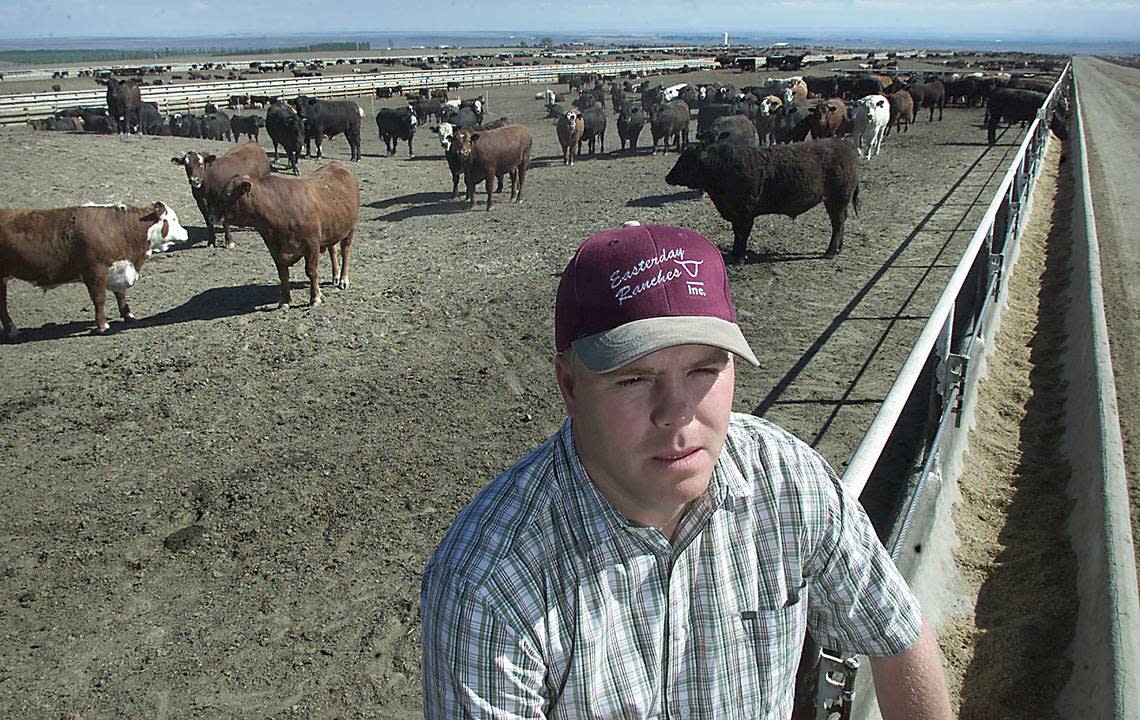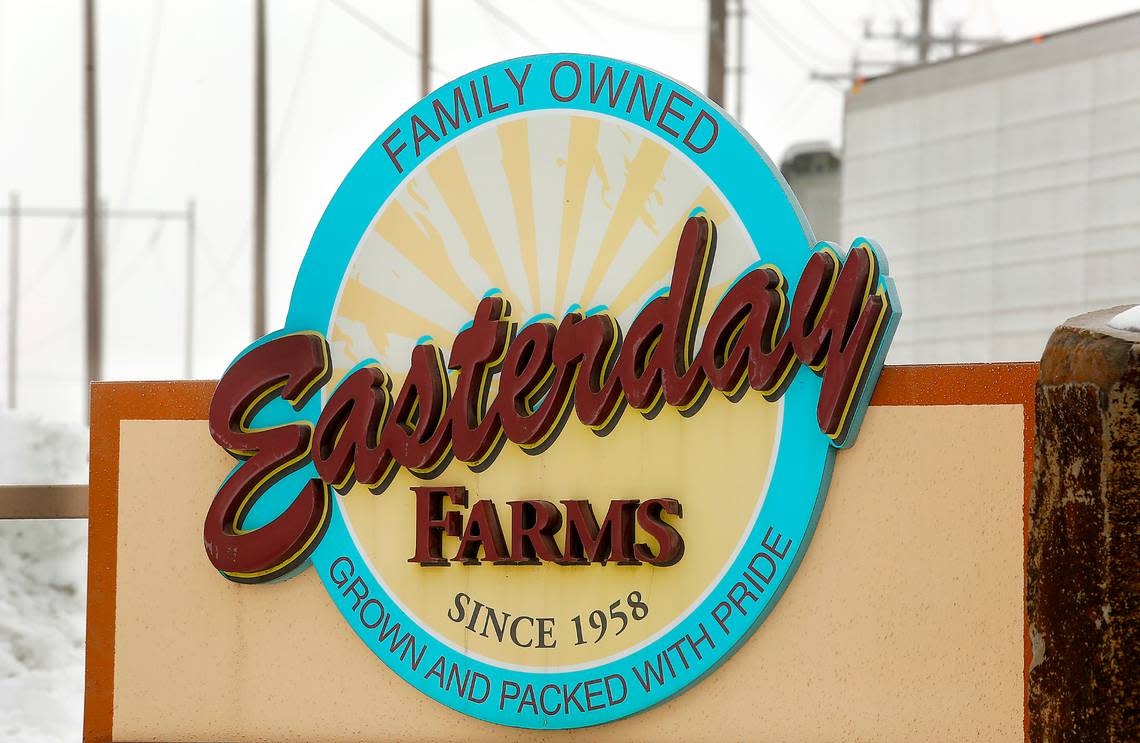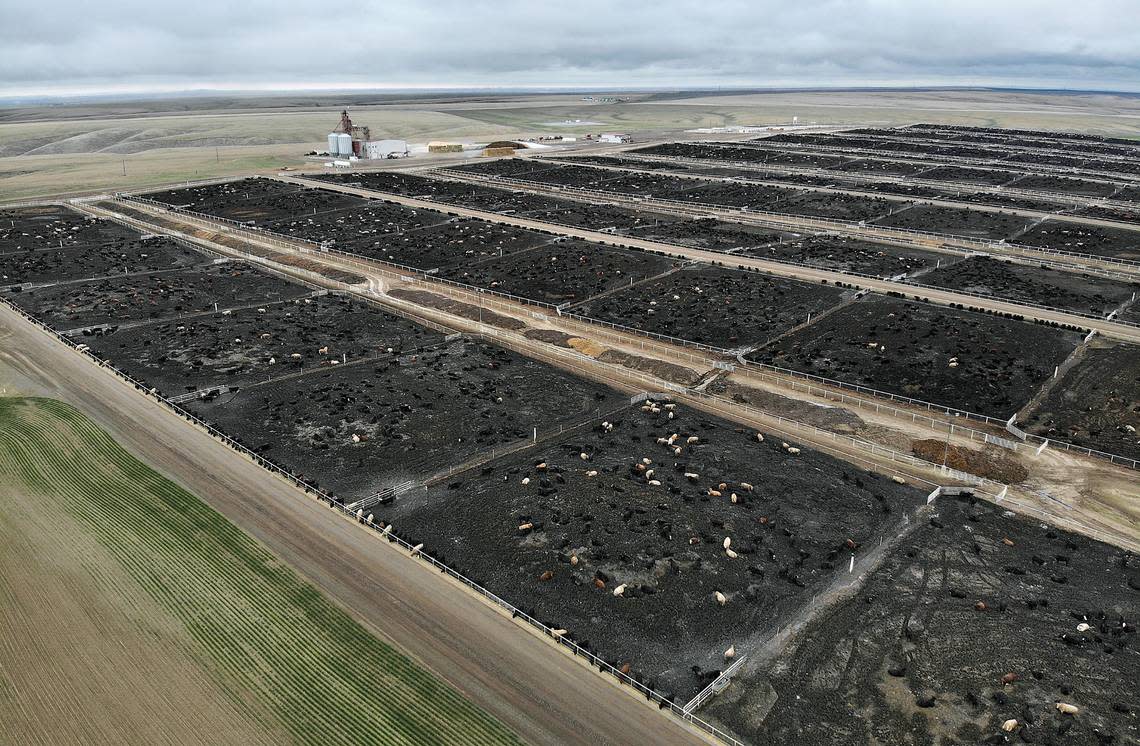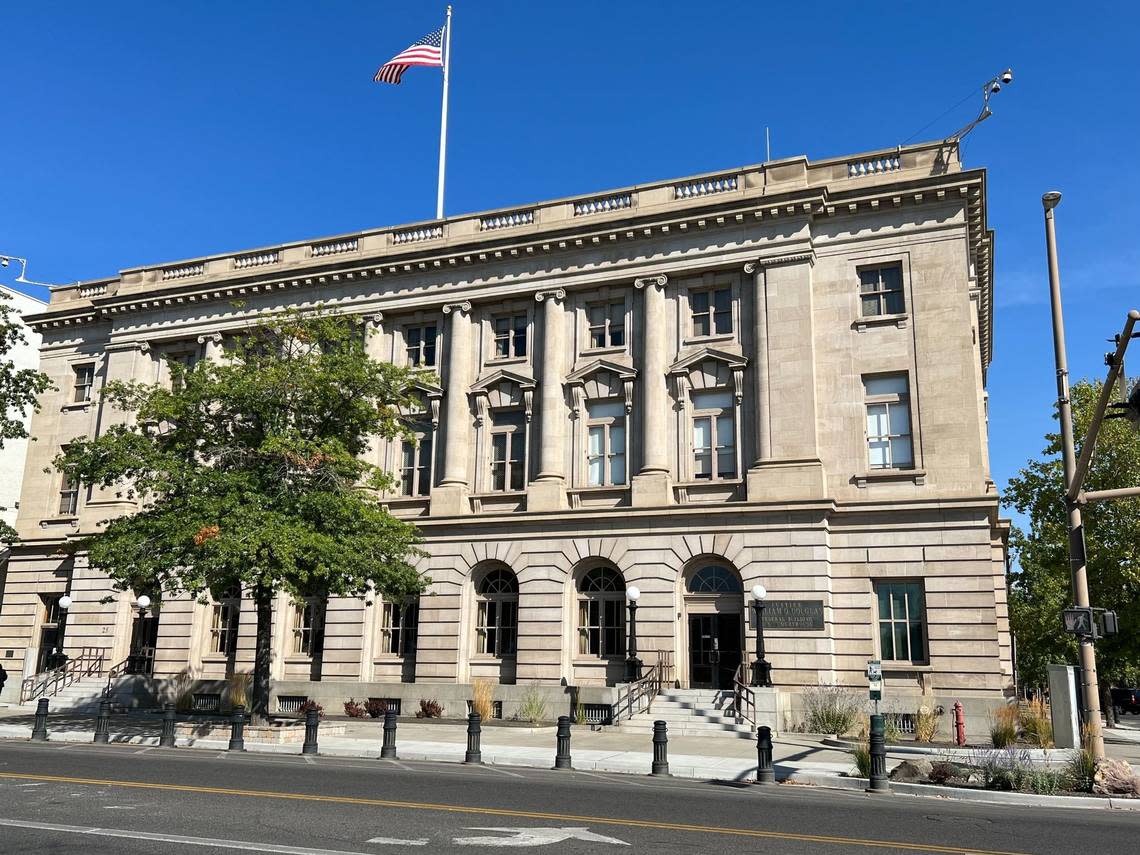Exclusive | Easterday sentenced for ‘brazen’ NW cattle scam. ‘This is not the man I am.’
Cody Easterday is headed to prison after being sentenced for a massive “ghost cattle” scam that defrauded Tyson Foods and another company out of more than a quarter billion dollars.
Easterday pleaded guilty in March 2021 to wire fraud but has remained out of prison while he helped settle the bankruptcy for his family’s extensive businesses, Easterday Farms and Easterday Ranches.
Easterday was sentenced Tuesday in U.S. District Court in Yakima to 11 years in prison. He’ll be on probation for three years after that.
He also was ordered to pay the full restitution of $244 million agreed to in his plea agreement. However, the judge will hear arguments at a later date, that could reduce the amount he still owes.
“It was, in a weird twisted way, the reason I was doing it ... was to fix the problem I had created. It was circular,” Easterday said at the hearing.
“There is no excuse. I’ve let a lot of people down, and it will take a long time to fix that, if I ever can. I’m just sorry, and this is not the man I am,” he said.
Easterday will likely be sent to Sheridan Prison in Oregon, but the final decision will be made by the federal Bureau of Prisons. He will turn himself in at date that was not immediately disclosed in the hearing.
His cooperation in the bankruptcy helped earn time off the possible maximum sentence of up to 20 years.
Easterday admitted to what prosecutors dubbed a “ghost cattle” fraud in which he charged Tyson for the care of more than 265,000 head of cattle that never actually existed.
He said he stole the money in order to offset more than $200 million in losses on the commodity futures market. Just this month his attorneys argued Easterday has a gambling addiction, in a bid to reduce his sentence.

Final arguments
Easterday’s attorneys had asked federal Judge Stanley Bastian to spare him from prison for the crime, instead requesting he serve one year on house arrest and three years probation.
They claimed the hundreds of millions of dollars he defrauded “arbitrarily” raises the sentencing range and should be used to determine his sentence.
Prosecutors with the U.S. Attorney’s Office said that Easterday’s crime was “massive, brazen and long-term” and argued that a crime of that magnitude deserved an equally harsh sentence.
Prosecutor John “Fritz” Scanlon said Easterday that while Easterday coming clean and trying to help guide the bankruptcy was commendable, he was only taking steps to fix a problem he had created.
“He didn’t have much choice about coming clean, the cattle weren’t there,” Scanlon said. “Tyson was going to find out.”
Bastian said the theft was the largest he has ever seen, and likely ever will.
Easterday’s attorney, Carl Oreskovich, argued that he was an integral part of the agricultural community, who made a mistake and in trying to fix it kept digging himself deeper.
They argued that using a sentence as a deterrent is ineffective, and said the guidelines do not take into account the kind of person Easterday is — one who is constantly helping others.
He described Easterday as a “hand shake” kind of guy, who was always good for his word.
In asking for only house arrest, they said it was no more of a reach than sentencing him to as many as 12.5 years because a guideline said so.

Easterday’s attorney also argued that Tyson should have known they were being defrauded by the sheer scale of the deception.
“I’m not saying that it justifies anything, but at some point, I look at it and wonder whether he wanted to be caught,” Oreskovich said.
A representative for Tyson pushed back during their victim impact statement, saying that Easterday shook hands with a lot of people at Tyson, and he defrauded all of them.
Scanlon said that coming in more than a year after pleading guilty and asking for no jail time did not come across as taking responsibility.
“Right now as he’s sitting here to take responsibility, he shouldn’t be coming in and saying actually I shouldn’t spend any time in prison or pay back (the money),” Scanlon said.
Scanlon noted that the offsets Easterday’s attorneys were arguing for would effectively wipe out what he still owed Tyson, leaving him having only paid about 29% of the $244 million stolen.
“The enormity and the audacity of this crime has captured the attention of the public,” Scanlon argued. “An appropriate sentence will send a message that if you commit a crime, you will be punished. If you commit enormous theft, you’ll get an appropriate sentence.”
Judge Bastian said he often has to decide sentences based on addiction, and the issue at hand was not drugs but money.
He said he took into consideration the dozens of letters of support for Easterday, and the fact that dozens of people appeared in court Tuesday on Easterday’s behalf. He also considered Easterday’s cooperation and his admission of guilt without going to a trial.
“I’m not sure how we got here. You built an empire, then you destroyed it.” Bastian said. “This wasn’t greed, but I don’t know how you got so deep into this you couldn’t get out. I understand that you’ve spent the last year and a half trying to clean up the mess, so to speak. I give you credit for that.”
Bastian added that while it may upset some people to hear, many of the letters of support for Easterday came from those who had been on his payroll at one point.
“You’ve had a lot of people who came here today, and who have written me ... Many people you’ve helped,” Bastian said. “That’s all great. You’ve had a good life, but many of these people supporting you were paid by you.”

Gambling addiction
The claim that Easterday suffers from a gambling addiction is a key component of the defense’s request to lessen his sentence.
His attorneys argued in court filings that his compulsion because of the gambling addiction was the reason he kept making commodity trades, and there is court precedent to reduce his sentence because of an addiction.
While his lawyers have included a few excerpts from a mental health evaluation in their sentencing recommendation, they successfully petitioned to have the entire report be sealed for privacy reasons.
They also claim that even before his death in a wrong-way collision, Cody’s father Gale Easterday had been suffering from Parkinson’s Disease and a general decline in health.
That was causing Gale Easterday to withdraw from closely overseeing his son and the business operations.
That’s when he began making riskier trades and then scrambling to cover his losses, said his attorneys.
The commodity futures trading was, according to Cody Easterday’s attorneys, a part of their business model, “as a hedge against fluctuating market prices.”
Prosecutors called the gambling addiction claim into question.
“Easterday’s gambling addiction was diagnosed only after he was caught and by health care professionals who met with Easterday and his family for short periods of time — and thus should be viewed skeptically,” they wrote.
The prosecutors say that Easterday only met with some of the professionals quoted for a few hours, and that none addressed how a gambling addiction would lead someone to steal significantly more than they had lost.
Fraud discovered
According to the filings, during a meeting with Tyson representatives on Nov. 30, 2020, Easterday admitted to Tyson that the cattle did not exist. He then cooperated with audits conducted by Tyson.

Cody Easterday kept a ledger of the false documentation, listing the nonexistent cattle as being held in “Lot 99.”
Over the past decade Easterday Ranches did about $2 billion worth of business with Tyson, according to court filings. Easterday Farms also was making about $250 million in revenue as of 2020.
On Dec. 10, 2020, he flew to Dakota Dunes, S.D., to meet with Tyson officials and “laid out a plan to still feed cattle on Tyson’s behalf, but apply any profits to the debts owed to Tyson for the previous fraud.”
His father died later that night in the crash in Pasco.
Later that month, Tyson filed a notice with the Securities Exchange Commission, notifying them of a $285 million loss due to misrepresentation of cattle numbers by a single unnamed supplier.
Determining a sentence
Federal sentencing guidelines are determined by a point system, with points assigned according to the severity of a crime and risk of reoffending.
Easterday’s sentencing recommendation is at 32 points. The base level offense of the crime is 7 points, the amount of money stolen increases it by 26 points, and another two points are added because sophisticated means were used to conduct the crime. Three points were taken off for acceptance of responsibility.

At 32 points, the sentencing range of 10 and 12.5 years is significantly less than the 14 to 17.5 years he could face based on the points scale.
His attorneys believe the 26 points for the amount stolen should be disregarded because of his good behavior, standing in the community and gambling addiction.
Restitution
After the sentencing, Cody Easterday’s attorneys argued for more time to determine how much restitution should be ordered.
His attorneys are asking Judge Stanley Bastian to hold off on the restitution, as they argue Tyson is owed significantly less.
In a nearly 60-page filing last week, Easterday’s attorneys claim that Tyson actually owes him money for various things, which would ultimately reduce the remaining debt to just $7.5 million.
If the court agreed to their claims, that would mean Cody Easterday ultimately would pay back less than 30%, or about $70 million, of the $244 million he pleaded guilty to stealing.

The biggest claim his lawyers are making is that Tyson owes Cody Easterday $100 million for a branding deal for beef sold in Japan over the course of 7 to 8 years. They claim Easterday’s likeness was used, but he was not compensated.
While marketing materials for that branding deal were included in the filing, a contract or cost breakdown was not. It is unclear how his attorneys settled on the $100 million value.
Cody Easterday’s attorneys are also claiming that Tyson illegally collected $51 million in interest and owes Easterday about $12 million for care and feed for the cattle.
In filings ahead of sentencing, the U.S. Attorney’s Office indicated that they are amenable to determining what, if any, other offsets Cody Easterday is entitled to, but would object based on the possible impact to when Easterday would have to report to prison.
The family’s bankruptcy proceedings are also nearly wrapped up, with a tentative settlement agreed upon by most debtors.
